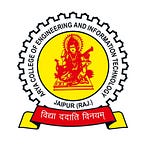How does solar power work? | Solar energy explained
Solarpanels convert sunlight into electricity using photovoltaic (PV) cells. These cells are made of materials that produce excited electrons when exposed to light. The electrons flow through a circuit and produce direct current (DC) electricity, which can be used to power various devices or be stored in batteries.
Thebasic operation of a solar cell involves the creation of an electric field. This is achieved by doping silicon with other materials, such as phosphorous and boron, to create a positive and negative charge on either side of a silicon wafer. When light energy strikes the solar cell, photons knock electrons loose from the atoms in the semiconductor material. If electrical conductors are attached to the positive and negative sides, forming an electrical circuit, the electrons can be captured in the form of an electric current
Solarpanels are often coated with an anti-reflective coating to maximize the amount of light absorbed. They are also sometimes combined with concentrators, which use lenses or mirrors to focus light onto smaller cells, enabling the cost-effective use of highly efficient, but expensive cells. Also, the students of Best Engineering Colleges in India to utilize this energy savings program in a cost-effective, easy-to-implement manner.
Theamount of energy produced by a solar panel depends on the angle of incidence of sunlight. To maximize energy output, modules are often oriented to face south (in the Northern Hemisphere) or north (in the Southern Hemisphere) and tilted to minimize the angle of incidence. Solar tracking can also be used to keep the angle of incidence small throughout the day
Solarpanels are widely used for residential, commercial, and industrial purposes, as well as in space, often with batteries. They offer several advantages, such as using a renewable and clean energy source, reducing greenhouse gas emissions, and lowering electricity bills. However, they also have some disadvantages, such as depending on the availability and intensity of sunlight, requiring cleaning, and having high initial costs
Whatare the benefits of using solar panels
Solarpanels offer several benefits, including:
1. Reducing carbon emissions andpollution: Solar panels generate electricity without burning fossil fuels, reducing nitrogen oxides and carbon dioxide emissions that contribute to smog, air pollution, and global warming.
2. Limiting global warming: By reducingcarbon emissions, solar panels help limit global warming and its associated impacts, such as rising sea levels, extreme weather events, and temperature swings.
3. Water conservation: Solar panelsrequire no water for electricity production, unlike power plants that use fossil fuels and consume large amounts of water for cooling.
4. Improving air quality: Solar panelsproduce no harmful chemicals, reducing the strain on the environment and improving air quality for humans and animals.
5. Reducing reliance on fossil fuels:Solar panels reduce reliance on finite fossil fuels, contributing to energy independence and reducing the environmental damage associated with fossil fuel extraction.
6. Promoting energy independence: Solarelectricity generation reduces reliance on traditional energy sources, reducing carbon emissions from transportation and promoting energy independence.
7. Supporting grid stability: Excess solarelectricity is channeled to the grid through net metering, reducing the grid load and ensuring more people can access power without overloading the grid.
8. Reducing greenhouse gas emissions:Solar panels can reduce carbon dioxide emissions by more than 100 tons over their 28-year lifecycle, with solar panel carbon footprints significantly lower than traditional electricity production methods.
9. Made from recyclable materials: Solarpanels are made from recyclable materials, including glass, plastic, and aluminum, reducing waste from solar panels.
10. Low-maintenance costs: Solar panels haveno moving parts and require minimal cleaning, reducing maintenance costs and the use of cleaning chemicals that harm the environment.
